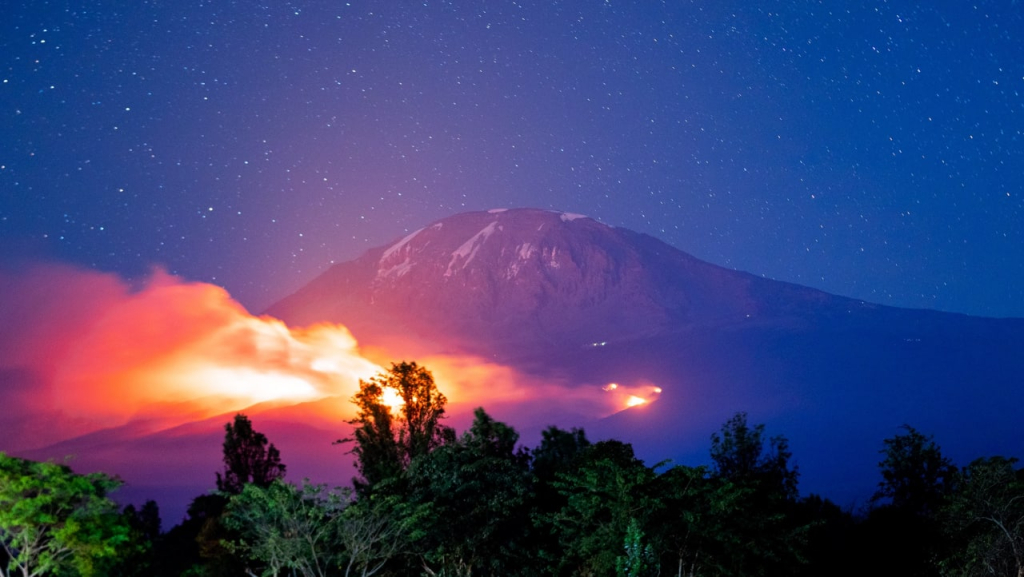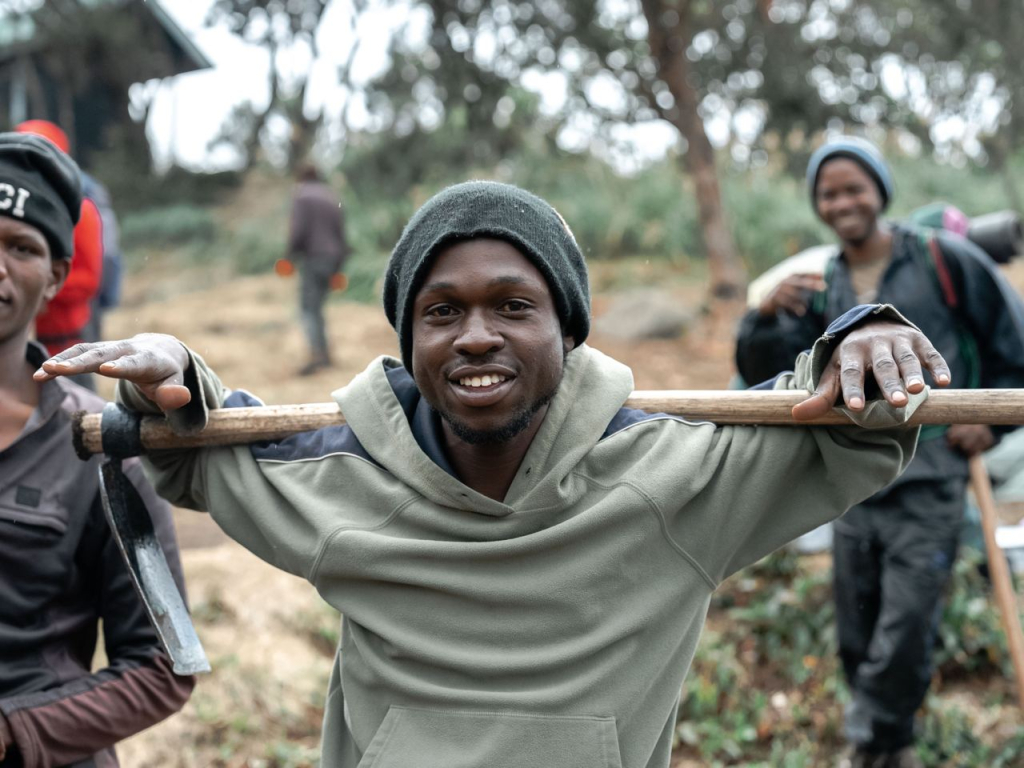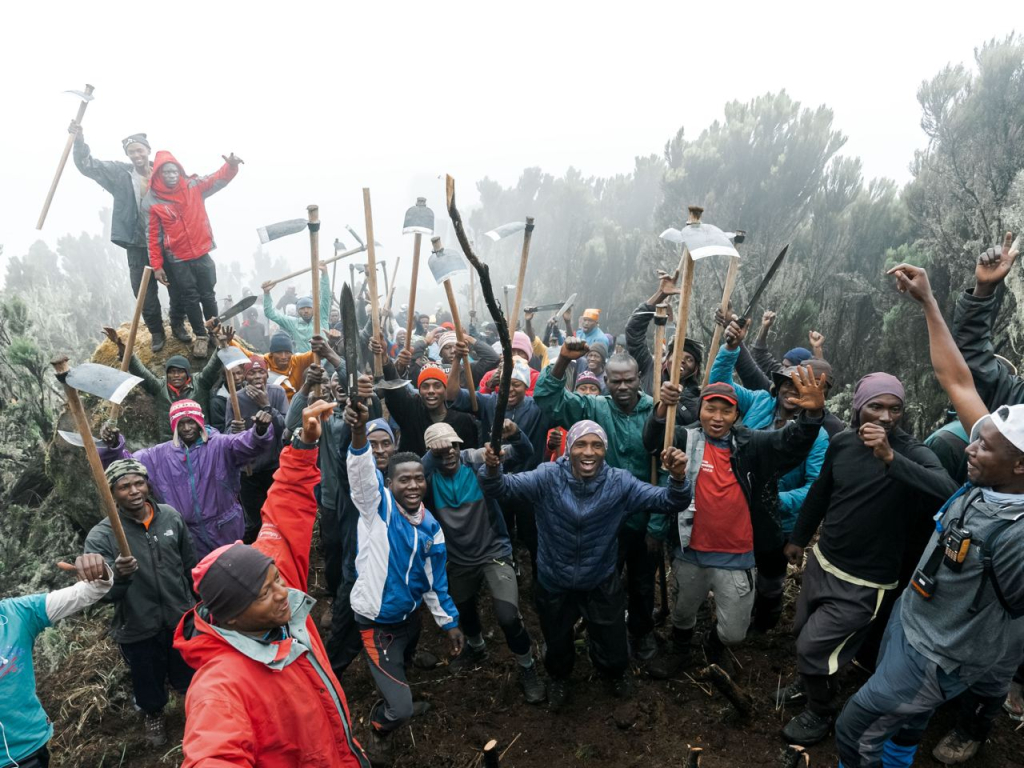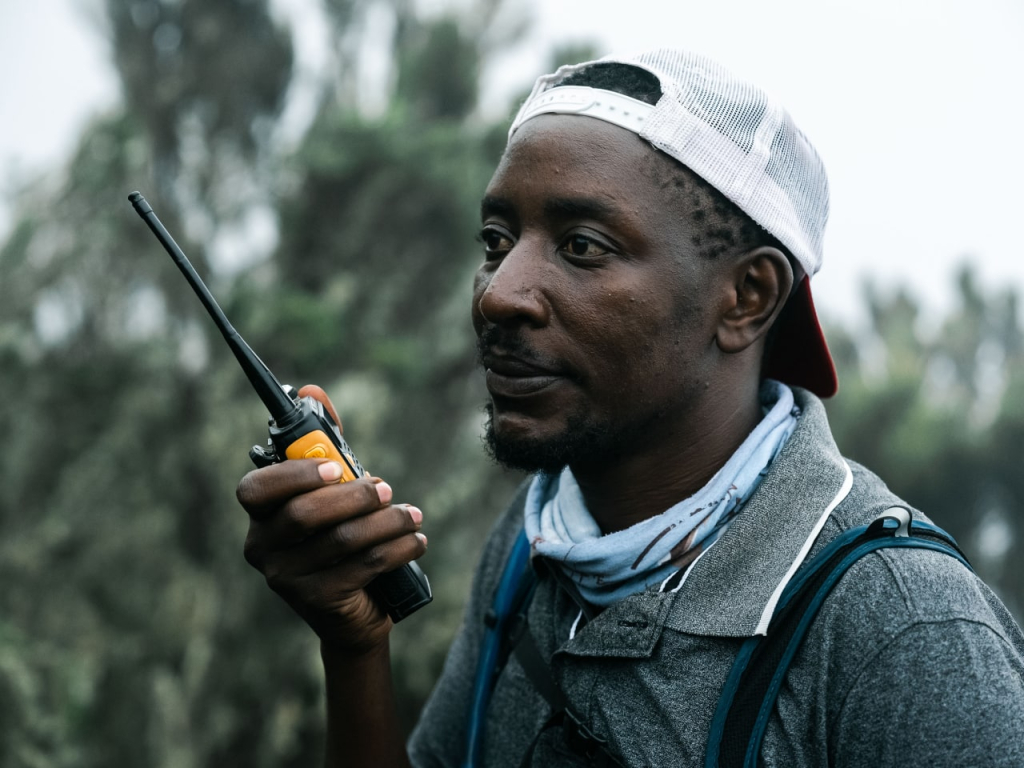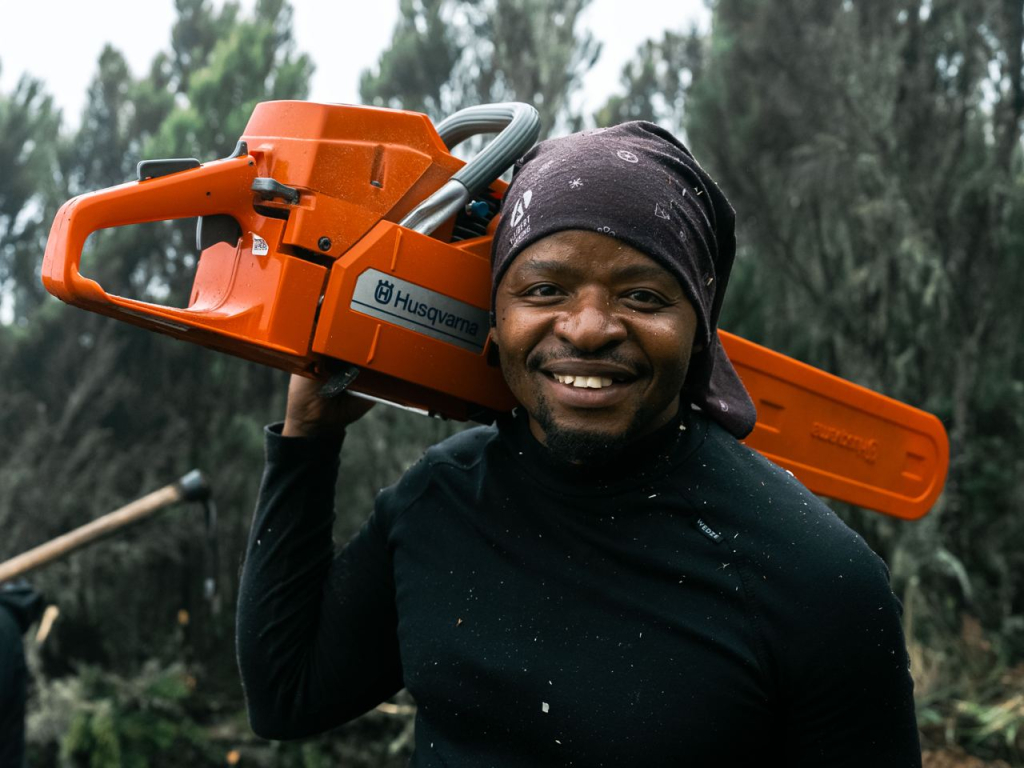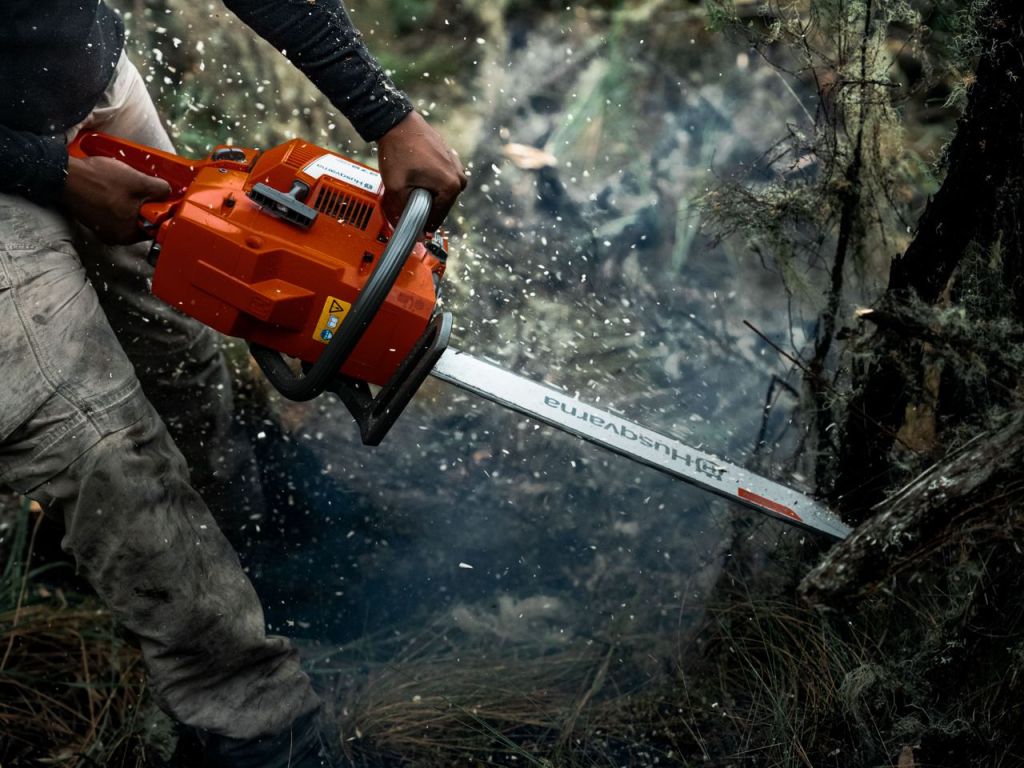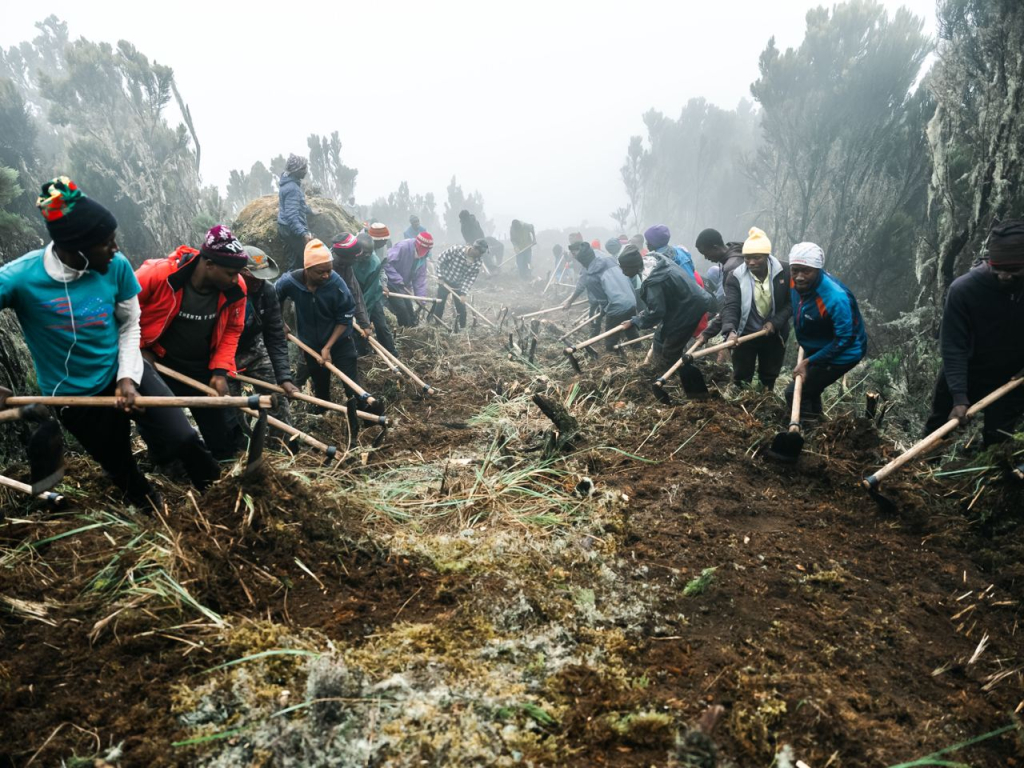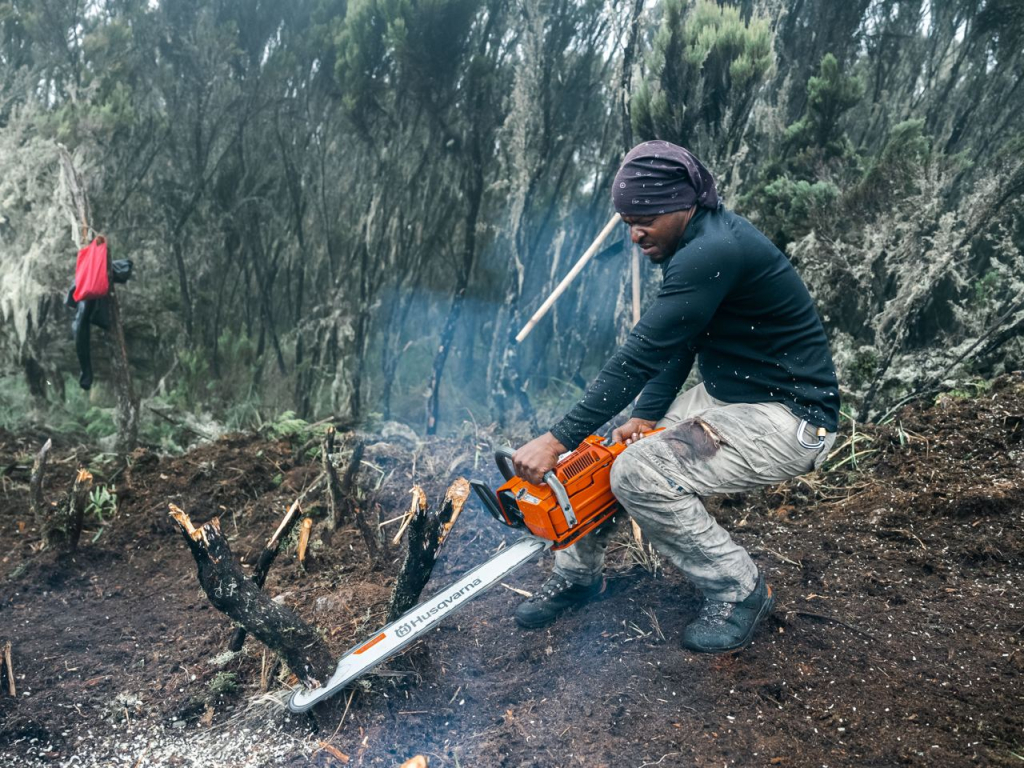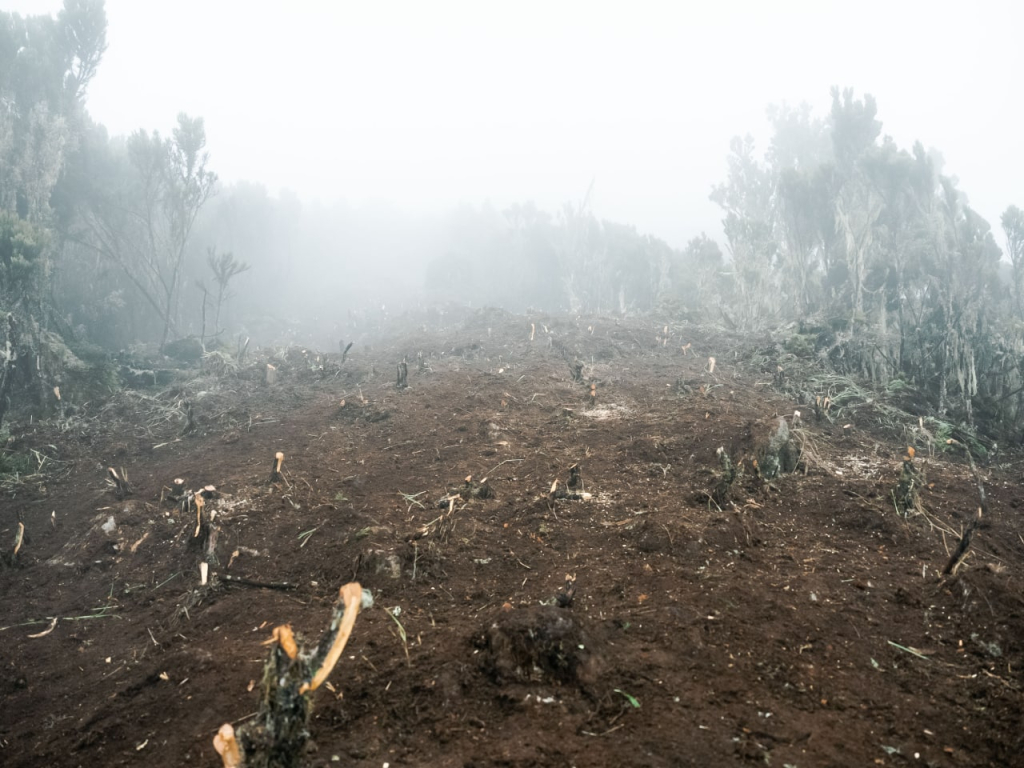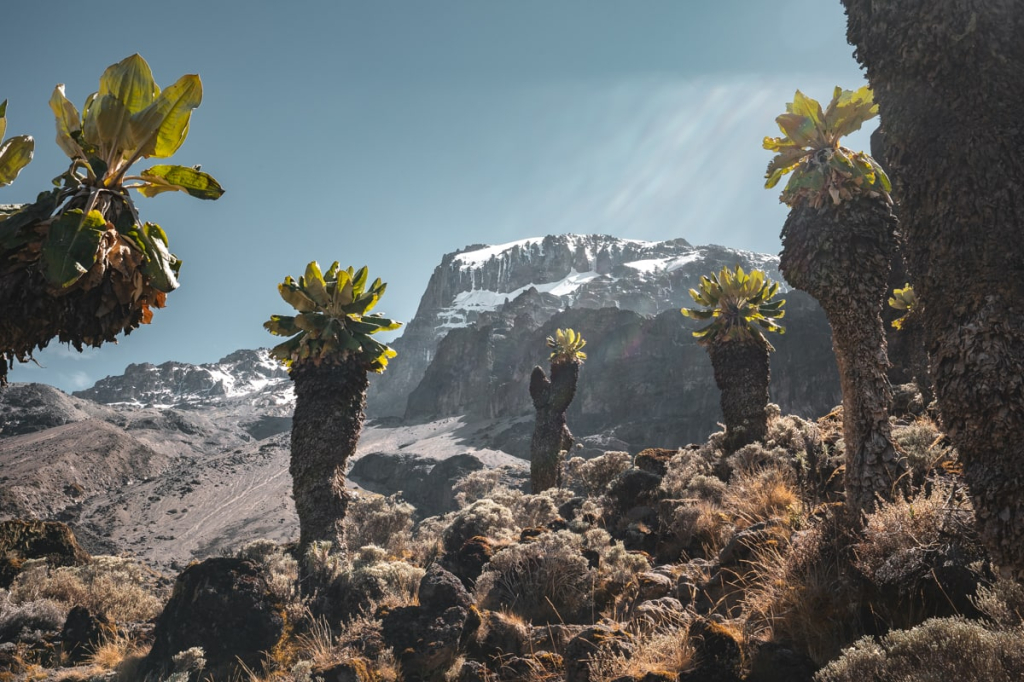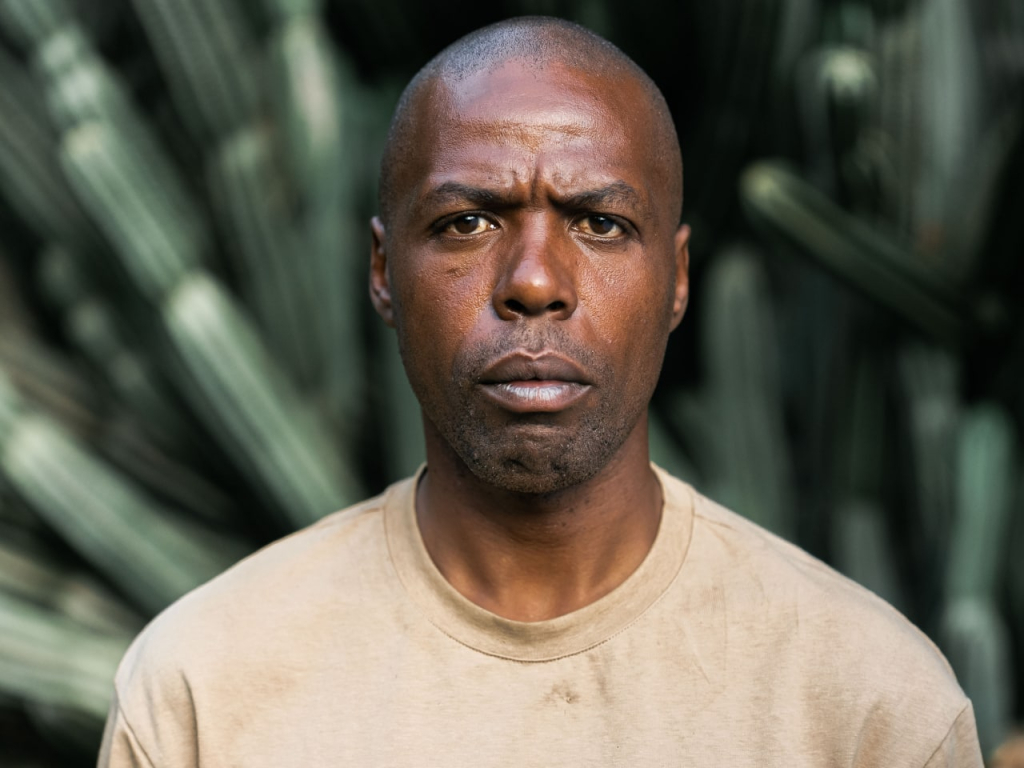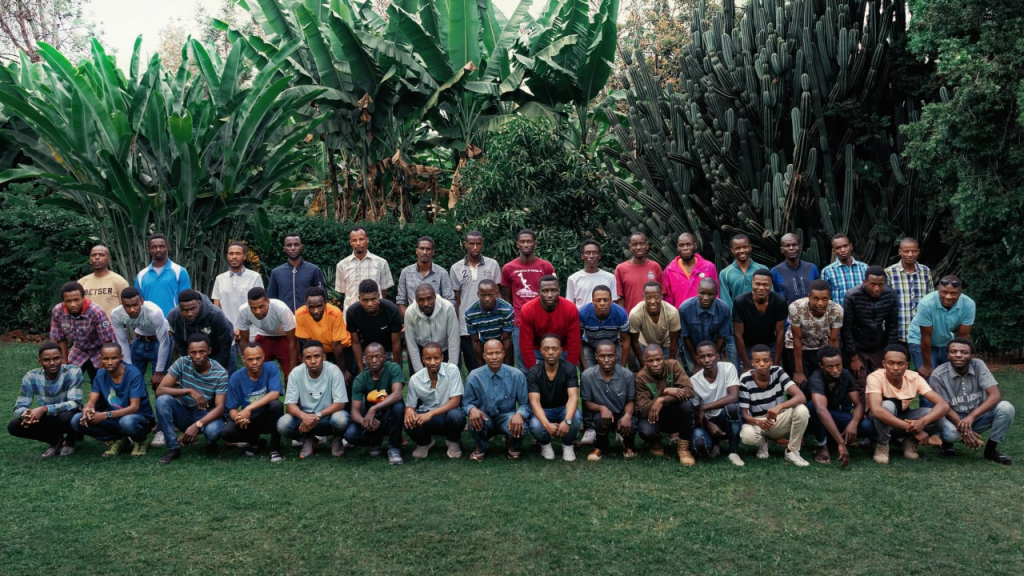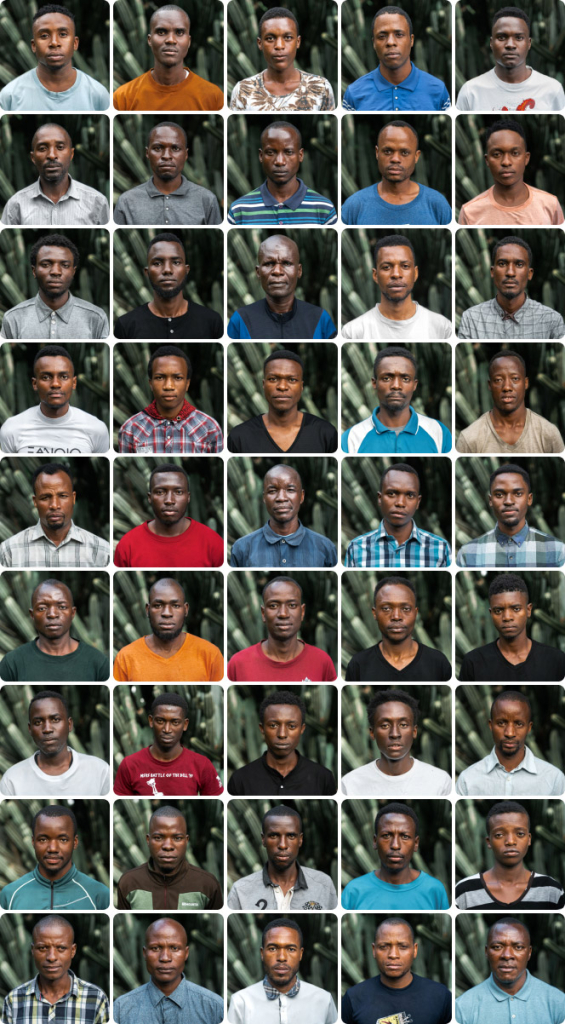On the evening of October 21, 2022, residents of Moshi, a town at the foot of Kilimanjaro, noticed a strange light on the mountain. At first, it was small and looked like a line of fire somewhere above the forest. So began the fire on the slope of Africa's highest mountain and the continent's main natural attraction.
Fire. The first days.
Early the next morning we received more information from Kilimanjaro National Park senior commissioners, who rushed to the scene. An area of low vegetation at about 4,000 meters in the Karanga Valley was burning, not far from Millennium Camp, but not close enough to threaten the groups moving along the route. Park rangers went to investigate the area engulfed by the fire, and the National Park Service began organizing firefighting efforts.
The previous fire on Kilimanjaro in 2020 reached 95 square kilometers. 5 Horombo Camp cabins burned down and commercial companies engaged in helping the firefighting efforts. This time, we were ready to organize our own firefighting team too. Two years earlier Altezza Travel equipped 100 people to play a decisive role in fighting the fire, while all other companies put together only 80 people.
On the same day, the management of the National Park reported that the fire will be localized in the near future, the situation is under control, and tourists are not threatened. We were thanked for our timely reaction and readiness to help, but we were assured that they would be able to cope by relying on their own forces. Already on October 23, a group of 200 people landed on the southern slope of Mount Kilimanjaro and began digging firebreak ditches around the areas that caught fire. Police and firefighters, as well as students from the college of tourism, were involved in the work.
Altezza Travel joins the fight against the fire
The news about the fire were spreading rapidly, first on the Tanzanian media and soon on the international news. Unfortunately, the fire was not extinguished in the first two days. By Monday, October 24, new fires had broken out and there were not enough people working in the park to cover them. Strong winds and lack of rain, which we only saw in the forecasts, contributed to the spread of the fire. The rising column of smoke over the forest in the distance was visible even from Machame, where the Altezza Travel office is located.
It became clear that the firefighters on the mountain needed additional help. The management of the National Park contacted us and asked for 50 people who could work on creating the firebreak track. A team of porters, guides, and cooks outfitted by Altezza Travel joined the operation to save the park's blazing ecosystem. Tanzanian army forces were also involved in extinguishing the fire, which should have turned the tide. According to Prime Minister Kassim Majaliwa, a total of 900 soldiers were mobilized.
This was the beginning of the short rainy season traditional for this region, which everyone hoped for. The first light rains came over the forest and Afro-Alpine meadows, though they were not enough yet. The forecasts predicted more rain in the days ahead. But we continued to get videos of burning and smoking heather from our guides and porters.
Several times a day we tracked new fire hotspots on the updating satellite images. Their number grew to several dozen. The vegetation on Mount Kilimanjaro continued to burn. On October 29, more than a week after the fire started, we received a report from our guide, Elia, who was on the firefighting mission, that the fire had spread across the Karanga River and was moving westward toward the Barranco Valley. The next day we saw the fire approaching the Umbwe Campsite and Barranco Camp. Then, taking responsibility, we decided to lay a firebreak along the Machame route. Firstly, it was important to protect the Machame camp and secondly, to keep the fire away from the Shira Plateau.
On October 31, 100 more Altezza Travel porters and guides headed to Machame Camp to create a 15-meter wide firebreak east of Machame Camp and above. Our team had several days to build a fire barrier up the mountain for a total of 1.5 kilometers. The team took all the necessary tools with them, including chainsaws.
We set up a camp with hot meals and everything they needed. Three mountain cooks went with them to the slopes of Kilimanjaro. The whole group was divided into teams of 10 guys; each team was led by a guide who stayed in contact with the office and coordinated the work with the other teams.
The good news in the following days was that no new hotbeds appeared again. In the last days of October, exactly on schedule, it finally started raining on Kilimanjaro, which helped a lot with limiting the burning area. Our team continued to work along the Machame route in the first days of November, moving north to the Shira Camp exit.
Thus, Altezza Travel once again contributed to putting out a fire in one of Africa's most significant and well-known national parks. Our steadfast porters and guides helped stop the fire on the slopes of Kilimanjaro, preventing it from spreading to wider areas. In addition, we prevented the fire from spreading to the Machame trail and the campsites on it. But unfortunately, the fire managed to damage the region's ecosystem.
The aftermath of the fire
The fire was extinguished through a concerted effort and a month later the authorities officially took stock and assessed the extent of the damage to Kilimanjaro National Park, a UNESCO World Heritage Site.
The fire burned for about ten days and destroyed just over 34 square kilometers of the park's natural vegetation. That's equivalent to nearly 2 percent of the National Park's total area. According to a report by Tanzania National Parks Conservation Commissioner William Mwakilema, plants such as Tanzanian endemics Dendrosenecio kilimanjari (giant groundsel) and Lobelia deckenii, Bracken (Pteridium centrali-africanum), Gladiolus watsonioides (Mackinder's gladiolus), Myrica salicifolia shrub, Kniphofia thomsonii with three-meter flower stems - the tallest of all kniphofia species, Erica, and other grasses, were most affected.
Perennials like the giant groundsel that have been standing on the slopes of Kilimanjaro for decades and centuries are especially pitiable. It is known that their growth rate is 3-5.5 centimeters per year, which means that the groundsels that reach 10 meters in height may be about 250 years old. Each dead plant of this species is an irreplaceable loss to the National Park.
Animals that cannot move fast, such as reptiles and amphibians, were particularly affected by the fire. Snakes, lizards, as well as rodents, have suffered from the flames. Unfortunately, several deaths of miniature antelopes have also been reported.
If we compare the areas of the last two fires, we can say that this time there were fewer losses. Two years ago an area of a hundred square kilometers burned, but this time the area affected by the fire was three times smaller. It is likely that the previous experience taught everyone how to respond more appropriately and quickly. There were a lot of talks this year about the need for more effort to track fires early on so you can prevent bigger fires. This is especially important because dry and hot weather is much more common than rainy weather here. The Tanzanian government's plans to allocate money for advanced fire-tracking equipment were also mentioned.
As for the causes, the investigation continues. The main version is human activity, with either poachers or locals extracting honey being the main suspects. The fact is that the bees are smoked out of the hives with smoke, which means that an open fire is made for this purpose, which is strictly forbidden in the National Park.
We hope that the Tanzanian government together with the relevant ministry and National Park authorities will take measures to prevent fires on Kilimanjaro in the future. And we at Altezza Travel are also proud of our guys who quickly responded to the call to help with firefighting and worked fearlessly on the firebreak strips. All of the guides and porters who participated in the firefighting efforts were paid a bonus by the company. We express sincere gratitude for their efforts and courage.
Altezza Travel guides and porters involved in fighting the 2022 Kilimanjaro fire:
- Elia Joel Mshanga
- Bosco Thomas Liweuli
- Joseph Lihiru
- Paul Bernard Daki
- Wilson Godfrey Harry
- Ramadhan Ally
- Japhet Frank Warioba
- Robart Emanuel Mushi
- Livestone Meela
- Jonathan Elisaria Lyatuu
- Emmanuel Maliyatabu Mtuka
- Elinihaki Elibahati Mzava
- Jacob Bitesigirwe
- Edward Edes Mushi
- David Chalambo Athuman
- Arone Maurus Myovela
- Erasto Nyalali
- Emily William Kimaro
- Athuman Ally
- Said Ramadhani
- Emanuel Clemence Mboya
- Malki Athumani
- Obeid Sabato Mwijarubi
- Lazaro Mushi
- Abdallahazizi Ramadhani
- Twalibu Mohamedi Ismail
- Maliki Muhidini Ndossa
- Richard Kirenge Gaweda
- Joseph Kombe
- John Kyara
- Maneno Joachim Mgiliwe
- Patrick Lugilira
- Israel Kileo
- Nelson Joseph Mhango
- Daniel Fabiani
- Amazi Ibrahim
- Ernest Lihiru
- James Ngaya Mbowe
- Gabriel Sawe
- Dickson Ndossi
- Stanslaus Fabian Masawe
- Daniel Massawe
- Chancha Andrea Kamana
- Obedi Matela
- Denis Sakita Kaora
- Muddy Yasin
- Japhet Mollel
- Abeid Said
- Yahaya Abdallah Chamle
All content on Altezza Travel is created with expert insights and thorough research, in line with our Editorial Policy.
Want to know more about Tanzania adventures?
Get in touch with our team! We've explored all the top destinations across Tanzania. Our Kilimanjaro-based adventure consultants are ready to share tips and help you plan your unforgettable journey.















